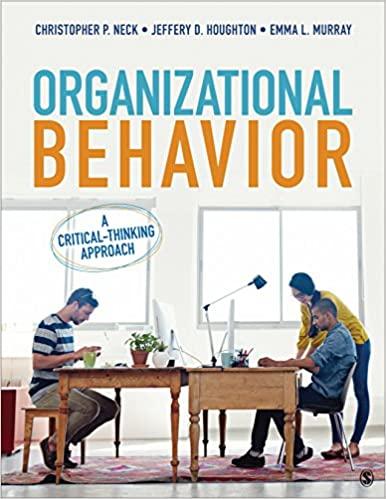Fast food in the United States serves up $200 billion in sales annually, and its rapidly growing
Question:
Fast food in the United States serves up $200 billion in sales annually, and its rapidly growing sibling is the “fast casual” industry, which strives to offer all the quality and freshness of traditional restaurants but with quicker turn-around times and lower costs. Fast casual, in fact, is expected to gobble up $62 billion in sales by 2019, skyrocketing up from 2014’s still-formidable $39 billion—and Denver-based Chipotle Mexican Grille is one of the movement’s most successful pioneers. Founded in 1993, today Chipotle opens a new store every other day and was recently valued at a staggering $21 billion. As Andrés Cardenal wrote in the Motley Fool, Chipotle is “perhaps the most successful growth story in the restaurant industry in recent years.” When pundits talk fast casual, Chipotle is inevitably mentioned in the same breath.
And yet, despite being a capitalist’s dream, Chipotle sees itself as more. Its commitment to “food with integrity”
sets it apart from its competitors. According to Chipotle’s website, “food with integrity” is a commitment to “the very best ingredients” that are ethically sourced; “to vegetables grown in healthy soil, and pork from pigs allowed to freely root and roam outdoors or in deeply bedded barns.” Chipotle says food with integrity is based on an understanding of “the connection between how food is raised and prepared, and how it tastes,” and it’s been integral to the company’s story since the late 1990s. It was then that Steve Ells, Chipotle’s founder, co-CEO, and a classically trained chef, read about the Niman Ranch pork farmers. As Ells told the Wall Street Journal, the farmers “had a very special protocol about raising animals humanely, feeding them a vegetarian diet and not giving them growth hormones.” Ells ordered a sample of the meat and made carnitas with it—he found the dish to be tastier than his previous efforts with factory-farmed meat. The chef-turned-entrepreneur had also toured factory farms and confinement hog operations, and he knew he “didn’t want my success or Chipotle’s to be based on the exploitation I saw. Not only the brutal treatment of the animals but the disregard to the environment, to the displacement of the family farmer and to the working conditions.”
Ethical food became Ells’s passion, and though he had opened his first Chipotle as a means to an end—to fund his then-dream of starting a fine dining restaurant—eventually it “clicked” that he could satisfy that passion with casual fare. Chipotle took off over the years (charged in part by an investment from McDonald’s); Ells has yet to open his fine dining restaurant, and perhaps never will. Ingredients like hormone- and antibiotic-free meats “were only available in high-end restaurants [at the time], not mainstream places,” he said in the same interview.
“Today, we buy more naturally raised meat than any other restaurant company in the world. I don’t know if I would ever have that kind of impact with one full-scale restaurant.”
Though publicly Ells insists that what keeps customers coming back is Chipotle’s great-tasting food, he and his team must have realized along the way that the “integrity” message had marketing power. The company takes every opportunity to reinforce it, after all; “it is what animates every decision the company makes, every strategic move,” as Robert Safian wrote in a piece on Chipotle in Fast Company. For example, in 2012, Chipotle rolled out a massive, multitiered marketing campaign emphasizing both the healthful and ethical considerations inherent to food choices. The message was introduced across an array of media: a smartphone game called Pasture Pandemonium; large-scale sustainable food festivals in cities like Chicago; and a two-minute animated film, Back to the Start, that portrayed a family farmer deliberating between factory farming and a more sustainable approach.
The narrative “humanized the devastating statistic that hundreds of families quit working their farms in the United States every week due to competition from big agriculture,” wrote Danielle Sacks, also in Fast Company.
Questions 1. Explain the type of decision making Chipotle used to develop its marketing campaign.
2. Describe how Chipotle became an example for ethical decision making in the fast casual restaurant industry.
3. Explain why Chipotle may experience more ethical dilemmas than Taco Bell or McDonald’s in trying to maintain success.
Step by Step Answer:

Organizational Behavior A Critical Thinking Approach
ISBN: 9781506314402
1st Edition
Authors: Christopher P. Neck, Jeffery D. Houghton, Emma L. Murray





